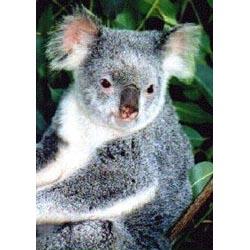Cuddly NW Qld koala tougher than the rest
Published on 10 April, 2003
Central Queensland researchers are heading west to determine if the area’s koala population is under threat.
The Central Queensland University hosted Koala Research Centre, based in Rockhampton, is undertaking a study of koalas in north-western Queensland to understand how this unique koala population is surviving alongside a rapidly developing agricultural and mining region.
 These northwestern koalas are an important element of koala conservation in Queensland. Researchers believe they represent a distinct type of Queensland koala that has adapted to the region’s bush and climate, while many other Australian koala populations have almost disappeared.
These northwestern koalas are an important element of koala conservation in Queensland. Researchers believe they represent a distinct type of Queensland koala that has adapted to the region’s bush and climate, while many other Australian koala populations have almost disappeared.
Principal researcher at the Centre, Dr Alistair Melzer said koalas live over a very large part of central and northwestern Queensland, but little is known of how they use this challenging environment.
“We do know the koalas cope with extended periods of drought, but also extensive flood conditions,” Dr Melzer explained.
“In the face of ongoing and extensive land development we do not know what bits of the landscape are essential for the koalas.
However researchers believe the vegetation fringing the rivers and streams is only one part of the solution.
“At times of the year they disappear from the streams. Occasionally koalas are found far from their expected habitat. We don’t know what is going on.
Their distribution is still largely unaffected by modern land management. Consequently they are an important part of Queensland’s biodiversity.
Community support is sought to assist the upcoming July field expedition to the headwaters of the Thompson River, near Longreach. This is the second stage in the establishment of the koala study in northwestern Queensland.
The Koala Research Centre is a community-funded association of the Rockhampton City Council, The Queensland Parks and Wildlife Service, Central Queensland University and the Central Queensland Koala Volunteers. Research activities occur around Rockhampton, Mackay and Gladstone.
The Centre has been operating in Central Queensland since 1995 and is reliant on community support.

